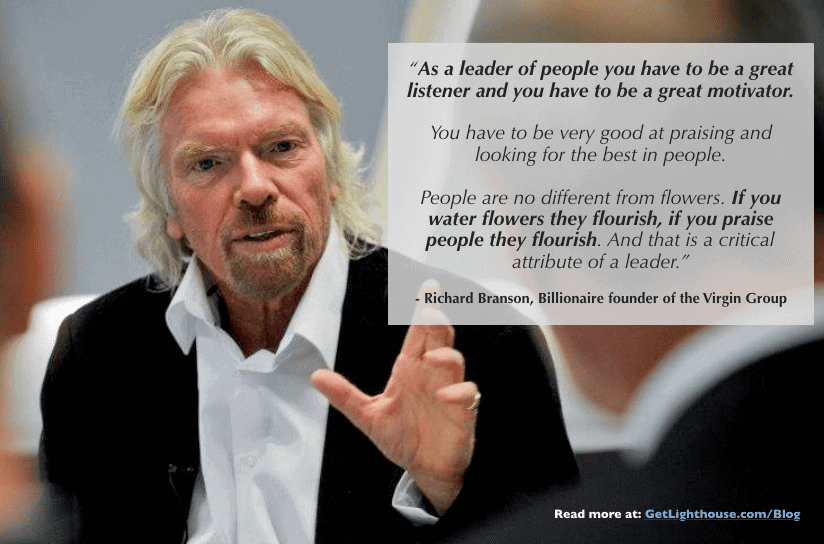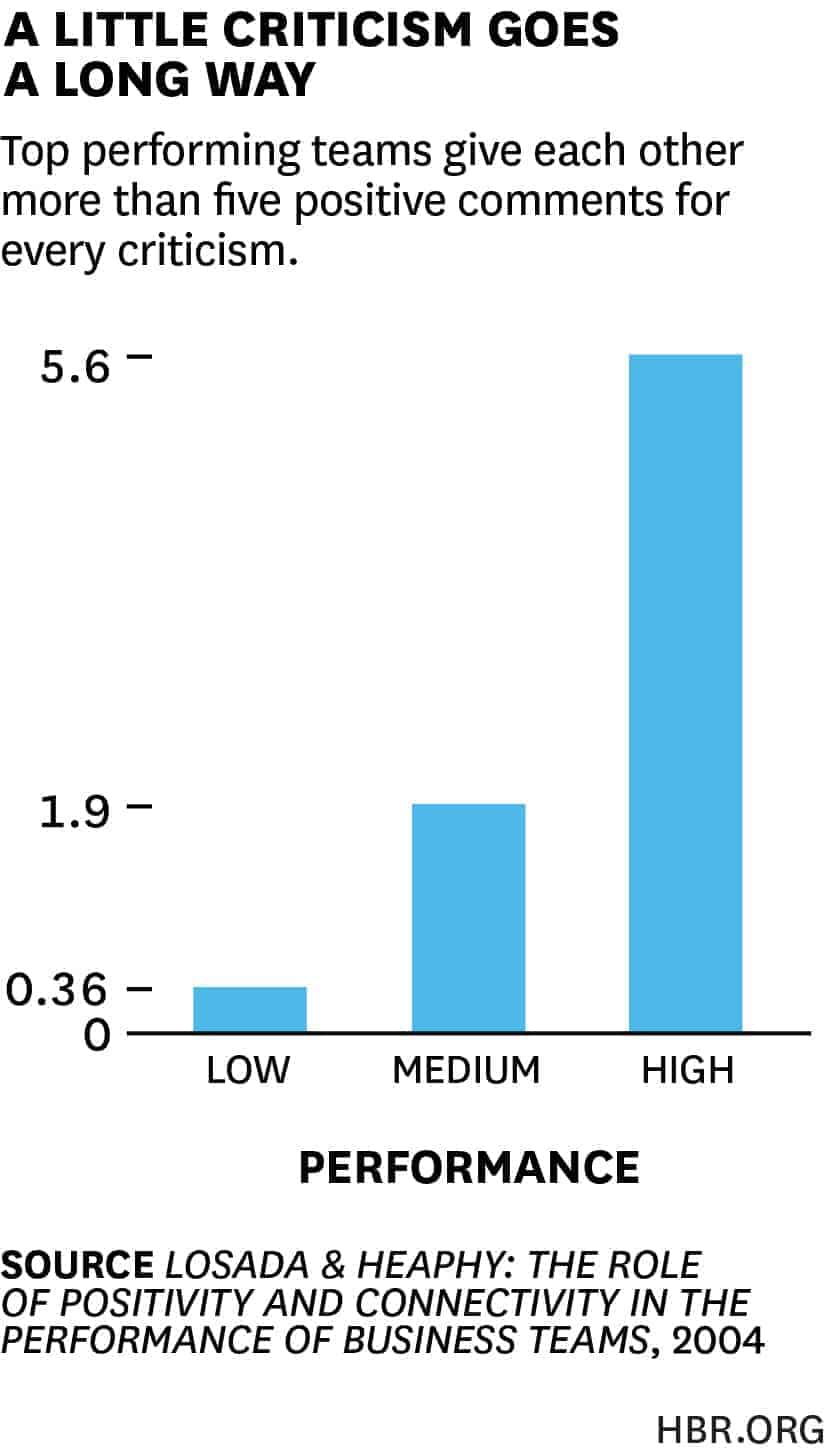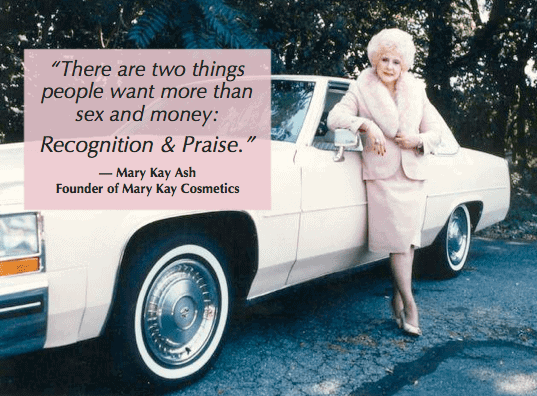Giving effective praise is one of the most underrated, yet crucial, parts of managing a team.
It can dramatically change how your team members feel and the caliber of work they produce. Research reported on Harvard Business Review shows that teams that are praised most outperformed those praised less across key criteria like financial performance, customer satisfaction, and 360-degree feedback.
Are you giving enough praise?
Unfortunately, most managers don't give effective praise, nor nearly enough of it.
A Gallup study found that more than two-thirds of employees do not receive any praise in a given week. This is while their research shows that getting "praise or recognition for good work” increases revenue and productivity 10% to 20%, and that those feeling unrecognized are three times more likely to quit in the next year.
Something's got to give.
We can all do better at such a critical, yet overlooked skill, so today we look at how to give effective praise.
3 Keys to Giving Effective Praise
As a manager, there are many soft skills to develop, and one of the most crucial ones is giving praise.
Approaching it like a skill and habit to develop gives you the right mindset to get great results from your team.
But if giving praise feels awkward or unnecessary to you, here's how you can make this critical habit work for you as part of your leadership routine.
Giving effective praise is actually quite easy if you remember just 3 words: Frequent, Specific, & Strategic.
1) Frequent
When you don't praise your team regularly, they don't know where they stand with you.
As a manager, what you don't say may be assumed based on limited information like your demeanor in a meeting, or a face you made in passing.
I'm amazed each time I have talked to a team member and discover they had mistaken something small I did for being upset with them.
This is why praise can be so valuable. It gives your team more information, so they know where they stand with you.
Remember: as a manager, your opinion matters to your team. They look to you for information about their status and standing. Effective praise has been the easiest way for me to relieve that uncertainty my team members can have.
Praise is temporary.
Unfortunately, science is working against those of us who don't give enough praise.
While negative comments, which fuel the release of the stress hormone cortisol, have an effect on the human brain for 26 hours or more, positive ones, which release the bonding and trust hormone oxytocin, last for a much shorter period of time. So even when you do give praise, the effect won't last long; you'll need to keep giving praise.
This aligns with another study, which found that the highest performing teams had a praise to negative comments ratio of over 5.6. When you consider how long criticism lasts versus praise, this ratio starts to make a lot of sense.
The bottom line: We could all use to praise our teams more frequently.
2) Specific
Now, you don't need to make them feel like they're brushing their teeth with sugar just to get your praise to criticism ratio over 5.
Hollow, brief, "good jobs” for everything won't cut it.
In fact, insincere praise will have the opposite effect of real praise. And yes, your team knows the difference, just like you have when you've received it.
Instead, tell them *exactly* what you liked in their work:
- Was it the way they commented their code?
- Did they give a detailed, efficient, and prompt answer in a support question?
- Were they able to take control of a bad situation and get everyone quickly working towards a good solution?
If you specifically acknowledge what you liked in what they did, they will know that you really paid attention, and they'll know exactly what to do to be praised again.
Did you notice?
Think about how many times in your own career you've said to yourself things like, "I don't think they even notice what I do.”
If you worked really hard on a project and no one cared, how did you feel? Did you want to put that same effort forward again? Or did you start thinking about working somewhere else you would be appreciated?
Not surprisingly, in a study by Towers Watson, researchers found that the highest driver of work engagement was whether workers felt their managers were genuinely interested in them and their well-being.
You can avoid your team feeling the unnoticed by specifically recognizing their efforts, especially if you take the time to look for unsung and overlooked heroes on projects.
3) Strategic
Now that you know how important praise is and the structure of good praise, it's time to get strategic about it: Use praise to develop your people.
Pick something each person on your team could use to improve on, or a skill you want them to add.
Work with them on it and any time you see them make improvement or do something great, praise them specifically for it. You will see them light up and keep getting better at it until they're at the level you want.
Occasionally praising the things you know they've always been good at will also keep them from feeling like no one notices their ongoing hard work.
What you reward and recognize is what you get.
If you don't recognize anything, the bar will lower to see what gets noticed (or what they can get away with).
When you give effective praise and reward your team, you raise the bar on their work, and encourage more of it.
A quick story: I once had a team member that seemed disengaged. Her work was ok, but she wasn't bringing the same energy and enthusiasm as others.
We wondered if we should keep her on the team. However, before we took such drastic measures, I tried using praise to improve her.
We put her on a new project and I emphasized how important she was to its success. I then specifically praised her each time I saw her do something great.
To my surprise, not only did she do a great job on the project, but her other work and her attitude improved dramatically. I have never questioned the power of praise since.
---
If you want great work from your people, remember to make your praise effective by making it:
- Frequent: Give praise every week to every team member.
- Specific: Make it clear exactly what you want to see more of.
- Strategic: Reinforce unsung work, raise the bar, and keep people learning & improving on new skills.
Start praising today!
Don't feel like this is a big task you don't have time for. It's one of many things you can do to be a better manager in 5 minutes or less.
Set aside a few minutes each week to reflect on something you can praise each member of your team for. A simple note thanking them specifically for something they've done well will bring smiles all around. Send it on a Friday afternoon and you might just have your whole team smiling all weekend.
How have you used praise as part of effectively managing your team?








